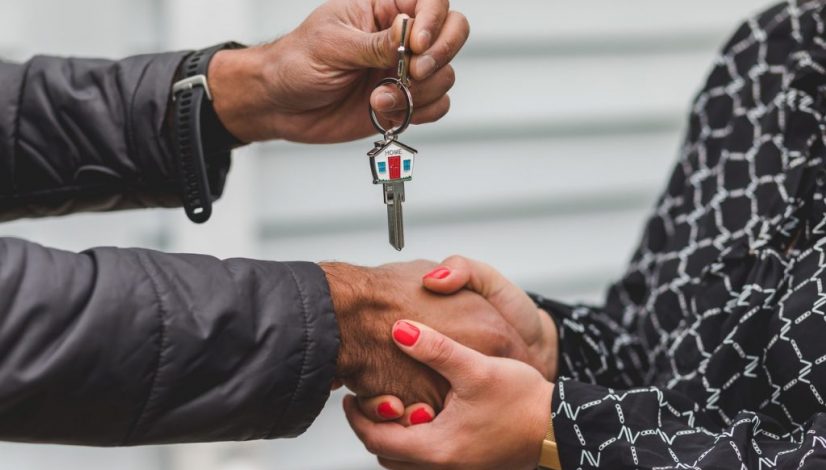Buying a Property
Purchasing a property, whether a house, an investment or commercial property, or land, is one of the most important decisions we make. Sound legal advice is essential. At Staunton Caulfield & Co., Solicitors, we have the experience and expertise to guide you safely through each step of the process and make it as stress-free as possible.
We will advise you on the Contracts for Sale and title (ownership) documents provided by the Vendor, the need for a Surveyor’s Report, how to comply with the requirements of your financial provider, and the procedure for completing your registration as full owner. For a user-friendly and efficient service, contact us at 094 9620008 or email us at solicitor@stauntoncaulfield.ie
Steps to buying a property / What is conveyancing?
Conveyancing is the legal work involved in buying or selling property; this process usually takes between four to eight weeks to complete. Below are the key steps your Solicitor will take to complete the purchase of a property and to protect your interest and future use of the property. It is important that you instruct your Solicitor as early as possible. Your Solicitor will give you details of legal fees and outlays involved under Section 150 of the Legal Services Regulation Act 2015.
Acquiring Documentation
The first step is for your Solicitor to contact the Solicitor representing the seller of the property, the Vendor, and request the contracts for sale and title documentation for the property. They will then raise queries (requisitions) on the title documentation on your behalf. If you are getting a loan, your Lenders will ask for details of your Solicitor, so they can send them requirements and the mortgage documentation for completion and signature.
Searches
The legal searches cover a wide array of issues: e.g. the Solicitor may need to conduct a planning search with the local planning office to learn whether there are construction plans which would negatively affect the value, enjoyment or use of the property. If the property is a hotel or public house, the Solicitor will conduct a licensing search.
Your Solicitor will confirm that the Vendor has legal authority to sell and will ensure that property was built following the appropriate regulations, e.g. planning regulations, bye-laws, building standards, and that all agreed fixtures and fittings included in your negotiations are covered in the legal documentation.
When all queries are answered satisfactorily, your Solicitor will invite you to sign contracts for sale and mortgage documentation. Both parties will then agree on a closing date for the sale.
Closing Requirements
When you sign the contracts for sale, you will be required to pay the balance of the deposit, which is generally 10% of the purchase price less any booking deposit paid to an Auctioneer. Your Solicitor will then create a list of closing requirements, which must be agreed upon by the Solicitors for the Vendor. They will carry out closing searches to ensure that there are no hidden burdens on the property, e.g. planning issues or judgements which may affect title.
Payment, Keys & Registration
If all is in order, the purchase funds are sent to the Vendor’s Solicitor. On the agreed closing date, your Solicitor will meet or correspond with the Vendor’s Solicitors to close the sale. At this point, you will then receive the keys to your new property.
The final step for your Solicitor is to register the title in your name, which includes paying stamp duty to the Revenue Commissioners and registration fees to the Property Registration Authority, as well as your Solicitor’s fees. When your registration as the owner is completed, your Solicitor will provide you with the title deeds or lodge them with your Lender if you have got a mortgage. This completes the conveyancing process.
I have agreed to buy a house… what do I do next?
Once you decide to purchase a property, it is prudent to contact your Solicitor for assistance with the next steps. The Auctioneer will typically ask you to pay a booking deposit in order to show how serious you are about the purchase, and he/she will also ask you for details of your Solicitor so they can forward us the necessary information in order to issue sales details to the Solicitors for both parties.
We will issue you with the appropriate statutory documentation, including information details of legal costs and outlays under Section 150 of the Legal Services Regulation Act 2015.
Once we are in receipt of the necessary information, we will liaise with the Solicitors for the Vendors in order to obtain Contracts for Sale and Title documentation. On receipt of Contracts, we will conduct a thorough review of the documentation to confirm that everything is in order. We want to ensure that you obtain good and marketable title to your new property.
If we have any queries, we will raise these with the Solicitors in advance of Contracts for Sale being signed by you. Upon satisfactory replies to any queries raised by us, we will meet with you to sign the Contracts for Sale. At this stage, the balance of the 10% deposit is payable to the other side, that is, the balance over and above any booking deposit paid to the Auctioneer.
Prior to signature of Contracts, we will need instructions from you as to whether you are getting a mortgage or funding the purchase from your own resources. If there is a mortgage involved, a loan condition will need to be included in the Contracts.
Once the signed Contracts for Sale and the deposit are returned to the Vendor’s Solicitors, we will also send them a list of our Completion requirements. The Vendor’s Solicitors will meet with their client(s) in order to have the Contracts for Sale and closing documents (as per our requirements) executed by the Vendor. Once the Contracts for Sale are signed by both you and the Vendor, the Contract becomes legally binding.
Once we receive confirmation that the Vendor has executed all closing documentation, we will require you to put us in funds for the balance purchase monies. We will put together a completion statement for you detailing the amount due. Upon receipt of funds from yourself and, if necessary, the Lender, we will send the balance purchase monies to the Vendor’s Solicitors, and they will forward us the closing documentation.
After this exchange, we will conduct final searches, which the Vendor’s Solicitors will explain and return. Upon satisfactory explanation of our searches, we will ask the Solicitors for the Vendor to confirm that the sale has closed and ask them to authorise the Auctioneer to release the keys to the property to you. It is at this point that the sale is officially closed, and you are the new owner of the property.
After the sale has completed, we will attend to stamping of the Deed of Transfer with Revenue and thereafter, we will register the Deed with the Property Registration Authority. Once registration has been completed, we will forward you a copy of the Folio and Filed Plan, which will show you registered as the owner of your newly purchased property, and this brings the transaction to a conclusion.
Do I Need a Survey?
Essentially, a survey is a health check on a property, revealing any problems or issues associated with it. If the survey raises issues, you, as the Purchaser, are then in a position to ask the Vendor to fix them before you proceed with the purchase and sign Contracts for Sale. Alternatively, you may choose to renegotiate the sale price with the Vendor to allow for the cost of rectifying such issues, or you may decide to pull out of the purchase entirely if you are not satisfied with the survey’s outcome.
As purchasing a property is a highly important financial transaction in your life, a survey can therefore prove highly valuable. Many properties will have some defects. Some of these could be quite serious, and so it would not be wise to embark on such a major financial investment without having first checked it out as thoroughly as possible. Thereafter, you would be in a much better position to make an informed decision. The cost of having a survey conducted should actually be looked at as part of the investment, as completing your due diligence can save you from making a very costly mistake!
It is important to note that it is not a legal requirement to have a survey on a property. At the time, it could seem like an unnecessary expense, especially when there are already so many other costs associated with a purchase. Having a survey completed, however, could actually save you money! As mentioned, if it uncovers an issue with the property, you have options to deal with this from the outset.
If you decide not to have a survey completed and Contracts for Sale are then signed, you will be deemed to have bought the property ‘as is’ and will, unfortunately, not have any recourse to the Vendor to rectify any problems at this stage. This is due to the legal rule of “caveat emptor”, more commonly known as “buyer beware”.
Essentially this rule means that a Vendor of property is under no duty to a potential Purchaser to ensure that the property is entirely free from defects or fix such issues after Contracts have been signed. As the Purchaser, it is up to you to satisfy yourself as to the physical condition of the property before proceeding with the transaction. For this reason, a survey is an invaluable option for potential Purchasers, and one we routinely advise be availed of.



